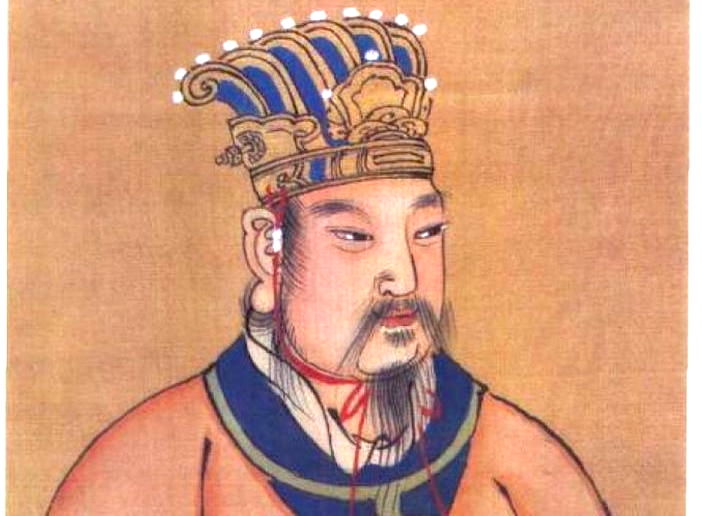An important concept in the history of China’s many dynastic governments is tian ming (天命), or the Mandate of Heaven. A ruler who follows this mandate leads his people with virtue, allowing the nation to become prosperous and survive adversity. The regime that ignores morality and turns on its people loses divine favor and is overthrown.
The Shang kingdom (1556–1046 BC) was the first dynasty in traditional Chinese history to be supported by archeological findings. It replaced the Xia Dynasty, a semi-legendary regime, when its last king, Jie, was said to have become immoral, tyrannical, and lascivious. It was Cheng Tang who overthrew Jie, becoming the first king of Shang.
But not unlike the previous dynasty, the moral corruption of the last king of Shang, Di Xin (帝辛), spelled the end of the kingdom that had lasted 600 years.
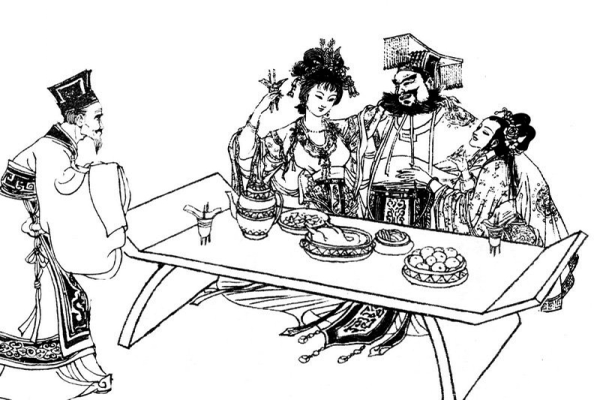
Di Xin was considered a capable ruler and strong warrior, but his arrogance overcame him. Accompanied by his wicked concubine Da Ji (妲己), he neglected state affairs, gave himself to drinking and partying, and punished those who dared speak out with gruesome methods of torture and execution.
It was during the dissolute reign of Di Xin that a man who embodied the Mandate of Heaven — King Wen of Zhou (周文王), would distinguish himself.
Success
You are now signed up for our newsletter
Success
Check your email to complete sign up
Though it was the king’s son, Wu, who in fact established the Zhou’s rule over China, it was King Wen’s righteousness and perseverance under tyranny that allowed his feudal state to survive and ultimately prevail.
The ‘cultured king’
Known during his life as Ji Chang (姬昌), King Wen, whose historical name means “cultured king,” was a vassal to the Shang kingdom in charge of Zhou State, a small nation in today’s northwestern China.
Even as the situation in the Shang royal court deteriorated, the ruler of Zhou maintained order and morality over his people, while continuing to pledge fealty to the corrupted king.
While historical records from the era are often mixed with mythological accounts, such as that described in the epic novel Investiture of the Gods, some idea of King Wen’s virtue can be gained from the Classic of Poetry, a compilation of some 300 ancient poems that reflected the lives and views of the Chinese alive 3,000 years ago.
In the Classic, King Wen is remembered as having been a pious monarch who paid respects to the Lord-on-High — whom the Chinese of the time worshiped as the ultimate divinity — and gained heavenly blessing.
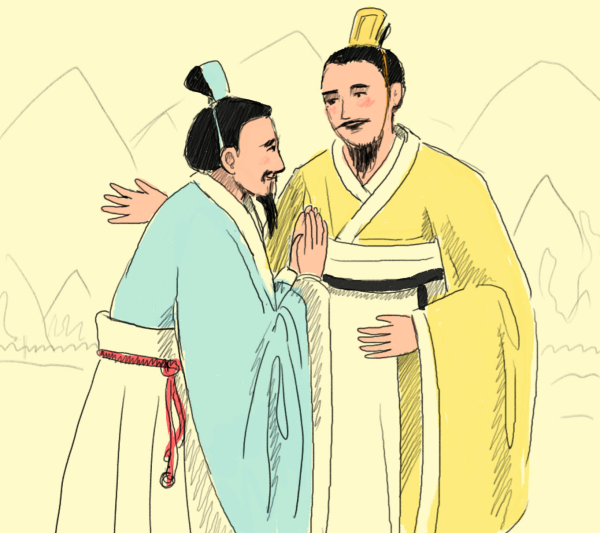
Ji Chang’s moral cultivation was such that, according to the poems of the Classic, his example was followed throughout the state by both officials and commoners. “Take your pattern from king Wen/And the myriad regions will repose confidence in you,” as the section Decade of King Wen has it.
The first poem in the Classic, known to many Chinese even today, describes the courtship of Ji Chang to his wife, the noblelady Tai Si (太姒). Together, they had ten sons.
But though Ji Chang’s virtue allowed him to receive blessings, he also faced daunting challenges under the rule of Di Xin.
Surviving under a tyrant
Even before Di Xin’s time, Ji Chang’s clan had suffered at the hands of the royal court.
Ji Chang became the count of Zhou at a very young age, when his father, Ji Jili, was betrayed and executed by Wen Ding, the then-king of Shang, who was worried about Jili’s growing power.
In an echo of that episode, when Di Xin heard of Ji Chang’s virtue and ability, he also became worried. Instead of seeing in the Zhou ruler a good subject, the king felt anger and jealousy at the popularity Ji Chang enjoyed among his people.
As a result, Ji Chang was imprisoned. Despite being placed in captivity, Ji Chang did not show any resentment at the king, and kept himself occupied with intellectual pursuits. While behind bars, he is said to have formulated the King Wen sequence of the sixty-four hexagrams, the basis for the famous text of divination, the Yi Jing or Book of Changes.
Ji Chang experienced great tragedy when his eldest son, prince Bo Yikao, pleaded with Di Xin for his father’s release. Offended, the king had Bo executed and his flesh made into dumplings. He delivered the meal to Ji Chang, perversely forcing the count to eat the remains of his own kin so as to prove his loyalty to the Shang.
Finally, Ji Chang was released after two of his loyal officials bribed King Di Xin with numerous gifts. The corrupt king was satisfied, not only releasing the count, but even returning to him his personal weapons and granting him a higher title, Count of the West.
Earning the king’s trust allowed Ji Chang an opportunity to request the abolition of a horrific torture, the “Burning Pillar Punishment,” which the evil Da Ji had delighted in watching.
A fateful encounter
Enduring unimaginable grief and humiliation to become Count of the West, Ji Chang was able to bring some sense to Di Xin’s bandit rule. Following the advice of his father and grandfather, he was constantly looking for talented men to serve as his officers.
But his heart had a longing that was yet to be materialized. His grandfather, the Grand Duke of Zhou, had told him that one day a sage would appear to aid Zhou State. And after asking his chief scribe to perform divination for him, he learnt that the day had finally arrived.
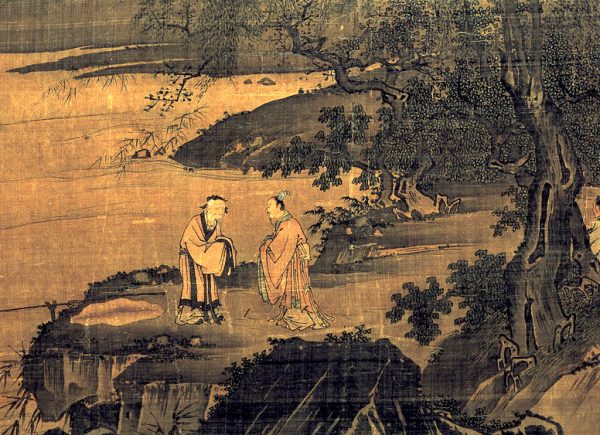
While hunting in the countryside, Ji Chang came across an old man fishing by a lake. A closer look at the white-haired fisherman revealed that he used an unbent nail as a hook, which, he explained, allowed him to catch only the fish that wanted to be caught — the origin of an idiom “he who is willing takes the bait” (願者上鉤).
The count knew at first sight that this was no ordinary elder angling for fish. It was Jiang Ziya (姜子牙), and he was looking for an enlightened prince to serve.
The legendary meeting between Ji Chang and Jiang Ziya was recorded in the Six Secret Teachings. After a discussion on governance and military strategy, Ji Chang decided to take the wise man to the court and appoint him prime minister.
Building a nation
Hundreds of years later, the philosopher Mencius would say, “the benevolent one has no enemies” (仁者無敵). This was borne out in Ji Chang’s time, as the Shang Dynasty deteriorated around him yet he persisted in the righteous government of his own realm.
Eventually, serious rebellions broke out against Di Xin. Ji Chang knew the time had come to assume the mantle of authority. With Jiang Ziya’s help, the count led multiple campaigns in territories where the Shang sovereign’s cronies harassed the people.
In this way, Zhou State gained the loyalty of more than half the Shang Dynasty’s lands.
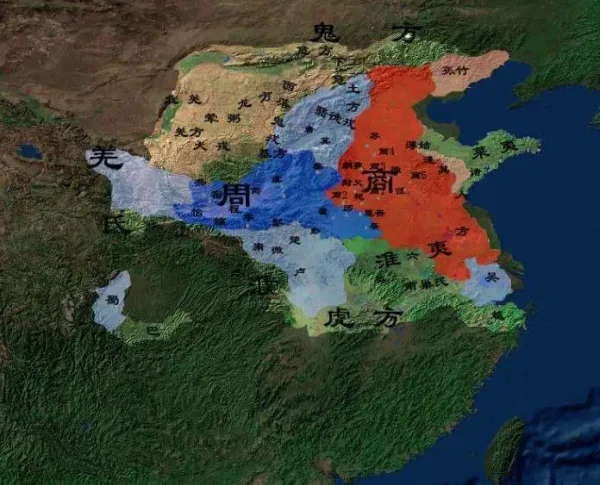
Sadly, Ji Chang died before he was able to see peace restored to the entire kingdom. He was succeeded by his son Ji Fa, known to history as King Wu of Zhou (周武王) — the Martial King.
Four short years after King Wen’s death, King Wu declared the Shang Dynasty illegitimate and raised an elite army to seize the royal capital.
At the Battle of Muye, the troops of Zhou clashed with Di Xin’s numerically superior hordes, which were mostly slaves and commoners who had been ordered into service. Most of them surrendered; the defeated king, knowing all was lost, set fire to his palace, donning a suit encrusted with fine jewels before he was taken by the flames.
Da Ji, his notorious concubine, was captured by Jiang Ziya. She attempted to escape through her wiles, but was put to death.
Although King Wu was the one to overthrow the Shang Dynasty, he honored his father as the founder of the Zhou royal house and posthumously titled him King.
The new government was composed of nobles from Zhou, its allies, and even those who had served under the Shang. A number of nobles who remained loyal to the old regime elected to go into exile; among them was Ji Zi, who according to legend traveled northeast and helped found an ancient Korean kingdom.
Like the Shang and Xia before it, the Zhou Dynasty was a feudal kingdom. The king was honored as the sovereign, but his authority over the vassal states was based on mutual respect and not absolute. At the beginning of the Zhou Dynasty, there were over 800 fiefdoms.
The Zhou kingdom would see nearly 300 years of prosperity until 770 B.C., when its capital was sacked by barbarians. Yet for 500 years after that, the kings of Zhou retained their titles, respected by the lords and dukes of China as the Son of Heaven.



